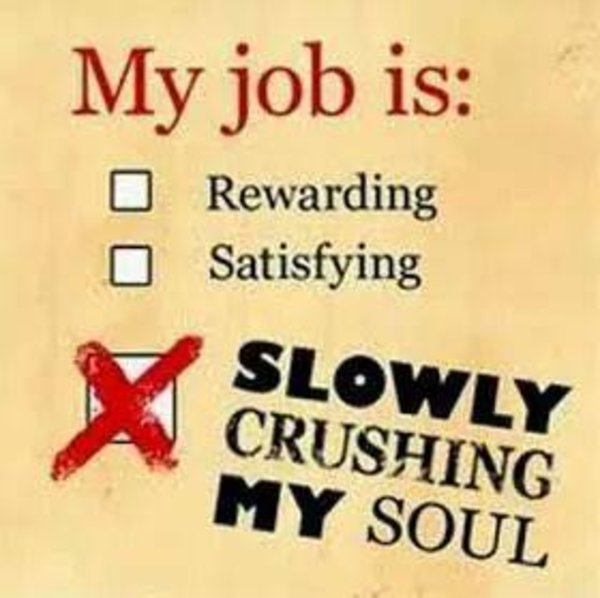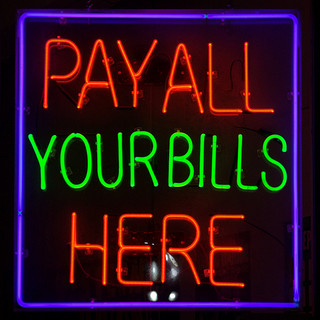And What To Do If You Are Already Suffering
This post explains WHY you may feel burnt out, HOW Americans have become especially susceptible to it, and WHAT to do for recovery.
Definition of The Problem
Do you feel exhausted, pessimistic, and inefficient all the time? Do these feelings get worse while at work or when working from home? These are just some symptoms of a condition called ‘Burnout’. While the World Health Organization recognizes burnout as an actual ailment, they emphasize we should not use the term burnout to “describe experiences in other non-occupational areas of life.”
Using the WHO’s explanation, we can understand that much of what we call burnout actually isn’t, but it feels the same.
We’ll look at non-work-related factors that contribute to the feelings of burnout later in this post.
The Mayo Clinic list potential causes for job burnout, they include:
- Lack of control on tasks
- Unclear job expectations
- Dysfunctional colleagues
- Lack of social support
- Serious work/life imbalance
While job burnout mainly affects the mind, the same article states that serious physical ailments occur after prolonged feelings of burnout. Here are a few of them:
- Heart disease
- Hypertension
- Substance abuse
- Increased vulnerability to illnesses
- Type 2 Diabetes
In multiple surveys across various age groups (Millennials, Gen-Xers, and Boomers) reports of burnout have increased over the last several years. Considering the impact it has on mental and physical health, burnout at work needs to be taken seriously.

Three Reasons Americans Are More Susceptible
A. Whose Work Are You Doing?
In The Bahamas, the employees of a company pump my gas, bag my grocery, and manage my pension fund. In the United States, these and other jobs have been sacrificed on the altar of ‘Shareholder Value’. The result is that each person is doing more work outside of their skill set, which is stressful. Bagging groceries and pumping gas are minor annoyances, but how many people can balance a portfolio and deal with various insurances?
B. Individualism
American society praises the idea of “Individualism”. The belief is that it is solely up to the person to change their own lives and to avoid reliance on government.
Individualism pits the mental, physical and monetary resources of one person against those of corporations. In such a contest, the individual loses, often.
Even worse, the individualist mindset is co-opted by corporations and used against an unsuspecting public. Here is an example: we have made much about our carbon footprints {the total greenhouse gas emissions caused by an individual, event, organization, etc}. But who popularized the idea through an extensive ad campaign?
Here is what the Wikipedia page has to say in its entry on Carbon Footprint: “The term was popularized by a $250 million advertising campaign by the oil and gas company BP in an attempt to move public attention away from restricting the activities of fossil fuel companies and onto individual responsibility for solving climate change.”
See BP’s lasting carbon footprint
C. The ‘Loser’ Mindset
American English is filled with idioms that express a “win at all costs,” mindset. Articles abound that tell, “How to Absolutely Crush It……….”, “5 Ways To Be Better At Everything” or “11 Ways To Turn Your Hobbies Into A Side Gig.”
What if you can’t “Crush It”? Suppose you don’t want to turn your hobby into a side gig or worse, you don’t even want a side gig? Why should you be your ‘best self’ in everything, always?
Tsk, tsk, this means you lack passion, need focus, or have neither drive nor ambition.
In short, you’re a loser.
Really, the previous statements have no meaning. Passion, focus, and motivation are not sustainable indefinitely. They are harder to maintain when you are doing something you don’t like to please other people. Go here, here, and here to read on Motivation and Focus, but understand that it is mentally damaging to tie your self-esteem to personal achievement.
You are not a failure, and you need not monetize every skill.
The Mental Plague Spreads
American culture dominates the world and will continue to do so for the foreseeable future. This is a threat to some and salvation for others. Neither of these feelings expresses the truth about any culture, which is that there will always be both good and bad ideas/beliefs.
As capitalism and democracy are enforced by the United States, Individualism and the ‘Loser’ mindset have spread. As I wrote in a previous post, I gave up answering questions on Quora concerning focus and motivation. Too many people were searching for answers on how to work more with less sleep. Others were desperate for tips on how to stay focused in classes they hated but had to complete for finding work. Many more people asked how to stay motivated on jobs for which they were clearly unsuited.
Looking at the names, grammar, and syntax, a countless number of people from the opposite side of the world are experiencing the worst effects of American capitalist ideology. It is also clear that they are experiencing it without the benefits of American labour laws, unions, workers’ rights, or safety regulations. The experience of reading/answering these questions was so depressing that I quit after two months.

So what is the workforce of today experiencing? A need to squeeze every bit of energy out of the worker in the name of ‘shareholder value.’. The transference of responsibility for all matters great (climate change) and small (bagging groceries) to the individual while simultaneously using the idea of Individualism against him. The workforce is being instilled with the belief that if they can’t do more or improve faster, it’s because of their lack of personal discipline, focus, or motivation.
Despite it being well known that these ideas are toxic, they will affect you, no matter where you live.
The COVID-19 pandemic makes all of this worse.
Dodging Burnout and What To Do If You Have It.
Considering the harm burnout does to the mind, body, and spirit, dodging it is a priority. Here is a list of what you need to do and explanations on how to do them. Implement the same steps to recover from burnout.
- Separate the urgent from the important
- Outsource and Automate when affordable/available.
- Avoid the Culture Wars
- Cultivate your mind
- Join
Separate the Urgent from the Important
If there is one thing that COVID-19 has done, it has made many businesses focus on their core products or services. In some companies, the ability to focus on maintaining core functions has been successful, in others it has meant labeling EVERYTHING as urgent. But, doing something right now and doing something really well is not the same.
You and your boss need to have a hard conversation about what they need immediately and what will make a difference to the company’s survival.
For those who are self-employed, the same advice applies. What products/services are you selling? Can you improve the sales or lower the cost of production? Can you correctly identify what’s important?
Outsource and Automate
Here is a post I wrote years ago on how to automate your finances. Since it was written, even more, can be done online. Just as companies have learned to lower costs by automating, so can you.

Another way to lower your daily stress is to outsource. Most people think of outsourcing as shipping jobs overseas. You should think of it as creating a job for someone else in your town. Someone else can do simple tasks such as standing in lines, doing odd jobs around the house, or even grocery shopping.
These suggestions might not seem to relate to job burnout, but each step you take towards lowering your overall level of anxiety increases your durability and focus at work.
Avoid the Culture Wars
I’ve been watching American culture wars for the last 50 years and the truth is that there is much ado about nothing. I’ve watched heated arguments between non-Americans on social media about some aspect of American culture that affects neither person.
Yes, yelling at people on the internet holds a certain appeal, but in the end, you are trolling someone or being trolled. Don’t you have better things to do with your life?
What I can say with a high level of certainty is that by the time people over the age of 40 take a side in a culture war, teenagers and young adults have already decided the winner.
Remember that your time is short, so use it wisely.
Control What You Can
The lack of control is a major cause of burnout on the job and stress in our daily lives. There are several things that we actually have control over, as you can read here and here. I’m a believer in slight changes that have profound effects on our physical and mental health.
Christian philosophy has given us the Serenity Prayer:
God, grant me the serenity to accept the things I cannot change,
courage to change the things I can,
And wisdom to know the difference. …
Often the real problem is that we freak ourselves out trying to solve a BIG problem with a Grand Solution. The alternative is often a small daily/weekly action that chips away at the big problem. This method is less daunting and more productive.
The more you can control in your personal life and on the job, the less stress you feel.
Cultivate Your Mind
Closely related to Control and the Avoidance of Culture Wars is the work of cultivating your own mind. ‘Doom scrolling’ is the habit of reading one dismal story after another on social media and is directly linked t to anxiety and depression. The best way to ward off these dangerous mindsets is to cultivate several mental practices to keep you resilient and happy.
Here is a post on How To Cultivate A Healthy Mind.
Join/Volunteer/Help
If you’re already burnt out, the idea of becoming responsible to another organization seems counterproductive. The science says otherwise. Helping others distracts us from our own problems and makes us feel good about our lives. The pandemic has made volunteering harder to do, but we can still join organizations that do good for our world..
I’d suggest that when looking for organizations to join, try those that scratch your own itch. There are unions, workers’ cooperatives, and international bodies committed to improving the lives of people like you. If the source of your burnout is linked to an unhealthy work environment, unfair wage practices, or inhuman job expectations, then it’s time to join.
Conclusion
Burnout touches us emotionally, physically, and psychologically. Even worse, these effects seep into other areas of our lives and damage relationships with our families. It is time to stop ‘sucking it up’, and pretending that it’s not that bad.
You or someone you know needs to be rescued from the modern ailment of burnout.
My question to you is what strategies to dodge burnout will you try first?
Resources
The Mayo Clinic – How To Spot it and Take Action
Forbes magazine – Worker Burnout is at Frighteningly High Levels.
National Geographic – We Still Don’t know The Full Impact Of The BP Oil Spill


Speak Your Mind